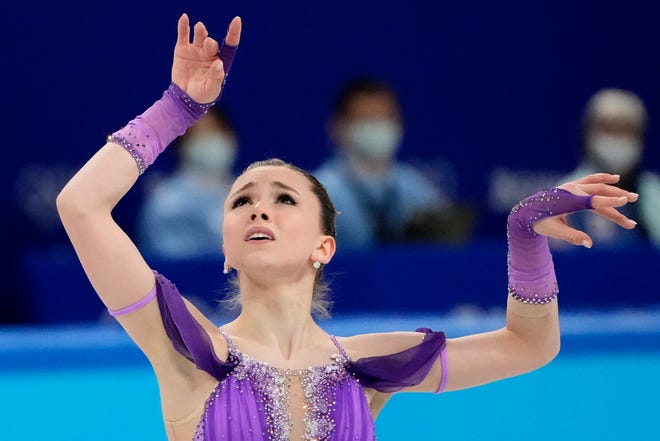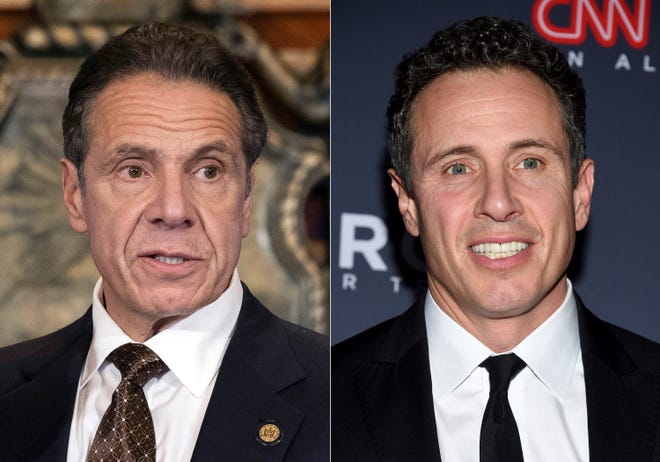
BEIJING — Attorneys for Russian figure skater Kamila Valieva argued that the banned substance trimetazidine entered her system through a medication that her grandfather takes, a member of the International Olympic Committee confirmed Tuesday.
In a scrum with reporters after the IOC's daily press briefing, a reporter asked IOC member Denis Oswald if the IOC was aware of the explanation that Valieva, 15, offered to the Russian Anti-Doping Agency in an appeal hearing earlier this month.
"I was not in this hearing," Oswald said. "Her argument was this contamination which happened with a product her grandfather was taking."
The crux of Valieva's defense had been previously reported Monday by The Dossier Center, a website run by exiled Russian businessman Mikhail Khodorkovsky. The website said it obtained audio of Valieva's hearing with RUSADA, which it said lasted 90 minutes.
According to The Dossier Center, Valieva's attorney, Anna Kozmenko, argued in the hearing that trimetazidine entered the 15-year-old's body accidentally, through a contaminated product. She also argued in the hearing that the product likely belonged to Valieva's grandfather, who takes trimetazidine for heart issues, according to the website.
'DESTROYS THE OLYMPIC SPIRIT':Father of US figure skater Alysa Liu blasts Kamila Valieva decision
WINTER OLYMPICS MEDAL COUNT:How every country has performed at the Beijing Olympic Games
OLYMPICS NEWSLETTER:Sign up to get Team USA updates from Beijing delivered to your inbox

"There can be completely different ways how it got (into Valieva's body)," Kozmenko said in the hearing, according to The Dossier Center. "For example, (her) grandfather drank something from a glass, saliva got in (and) this glass was somehow later used by the athlete."
Kozmenko, a partner at the Swiss-based law firm Schellenberg Wittmer, did not immediately reply to an email from USA TODAY Sports seeking comment. RUSADA also did not reply to a request for comment.
RUSADA provisionally suspended Valieva on Feb. 8 upon learning of her positive test, as required by the World Anti-Doping Agency's code. But the skater appealed that decision the next day to a RUSADA disciplinary panel, which agreed to lift her suspension after the aforementioned hearing.
That decision led the IOC, WADA and the International Skating Union to take the matter to the Court of Arbitration for Sport, which ruled Monday in RUSADA's favor – clearing the way for Valieva to compete in the individual event Tuesday.
The Dossier Center also published the text of WADA's application to CAS, in which it briefly detailed the arguments that Valieva made to the RUSADA disciplinary committee.
"The Athlete's explanation ... was that (i) her grandfather was a regular user of trimetazidine medication and (ii) she must have somehow been inadvertently exposed to that medication before the Doping Control," WADA wrote.
"No specific scenario for the exposure was advanced."
CAS had yet to release the full text of its decision not to suspend Valieva as of Tuesday afternoon.
Contact Tom Schad at [email protected] or on Twitter @Tom_Schad.









